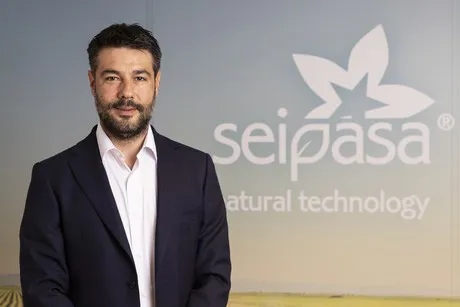The stone fruit sector has known better times. Producers have been losing money for years and therefore, many may be afraid to invest in new techniques that would allow them to harvest fruit without generating waste. However, thanks to companies that provide the 'tools' and advice, it is becoming easier for growers to bet on this more sustainable and profitable type of production.

One of these companies is Seipasa, a manufacturer of biopesticides, biostimulants and fertilizers, which co-organizes and is taking part in the Healthy and Waste-Free Stone Fruit conference, organized by Zerya. The goal behind this event is to try bringing the stone fruit sector's main actors together, from producers to marketers and large retail chains, allowing them to share their perspectives and solutions for the handling of diseases, pests, nutrition, etc.
Javier Nácher, Technical Director of Seipasa, believes that it is possible that we are witnessing an important change in the production processes: "There is a growing demand for waste-free products on the part of consumers and large retail chains, especially in North America and northern Europe. For example, we can say that there has been growth in the productions under a biodynamic certification, and expenditure on organic products amounts to 36 Euro per inhabitant per year, which is almost 70% more than in 2012. There is a growing trend that has helped rationalize the use of chemicals. Now there is a search for products with a lower toxicological profile.
Agriculture is not managing to attract new workers to some important producing areas that work with small-scale models. The generational change is thus becoming a thing of the past. There are, however, regions with large production areas in Spain that can better deal with price fluctuations, and where more investments are made at the varietal and pest management levels, making them more competitive in the market. Techniques are being sought to make the stone fruit production more intensive, but such techniques are not easy to apply for those small producers who have always cultivated the fruit in the traditional way. "Our company has solutions to help those producers in areas like pest control with biological products," says Nácher.
According to the expert, "manufacturing a phytosanitary product that is more environmentally-conscious and healthier is usually more complicated and sometimes even more expensive, since the manufacturing process is different. However, the products obtained have a lot more added value, so higher prices can be charged. Consumers are willing to pay in exchange for higher quality in what they eat. It is our obligation to spread the message that its profitability is worthwhile.
Our products are characterized for being biological, and although this doesn't necessarily mean that they are waste-free, in our case we aim for them to have as low a content as possible, as this greatly favors biodegradability," says Nácher.
"We develop phytosanitary solutions that seek to integrate into agricultural programs. Our products, once they are on the market, are tested and adapted to the needs of each crop and each area. We achieve this by visiting the fields, advising producers and being aware that each product has its own specific technical requirements."
"There is still a lot of work to be done in this area, but we are seeing a very important transformation. There is a market for organic farming and 'zero waste' products that is growing non-stop, and we will be here to help producers succeed with this important change," concludes Javier Nácher.
More information:
Javier Nácher
SEIPASA
jnacher@seipasa.com
T: +34 962 541 163
www.seipasa.com
